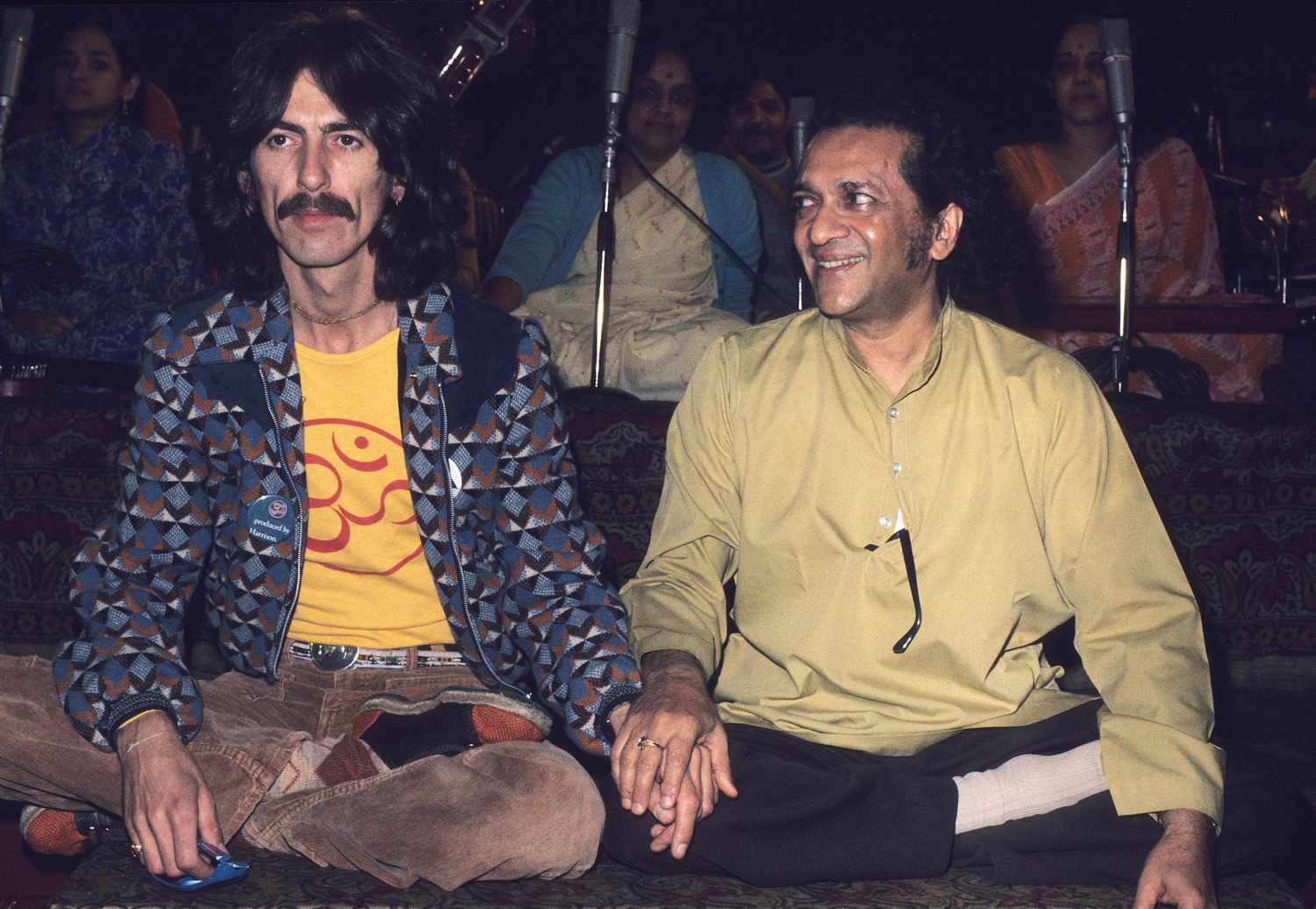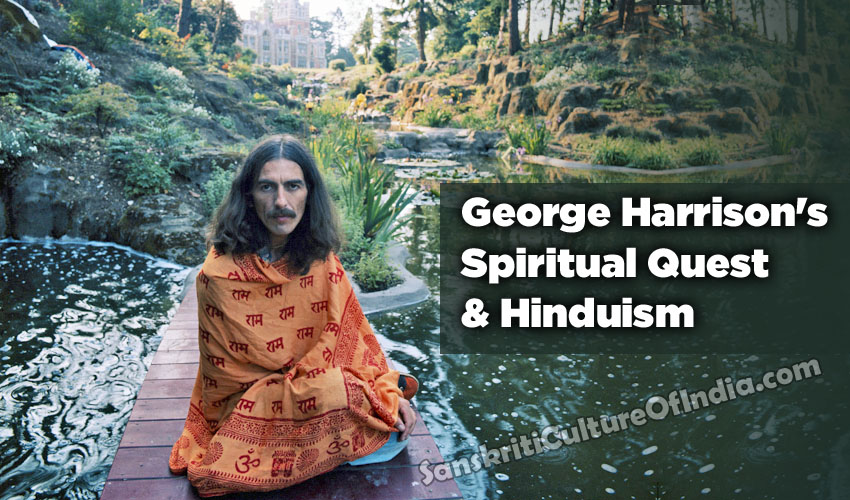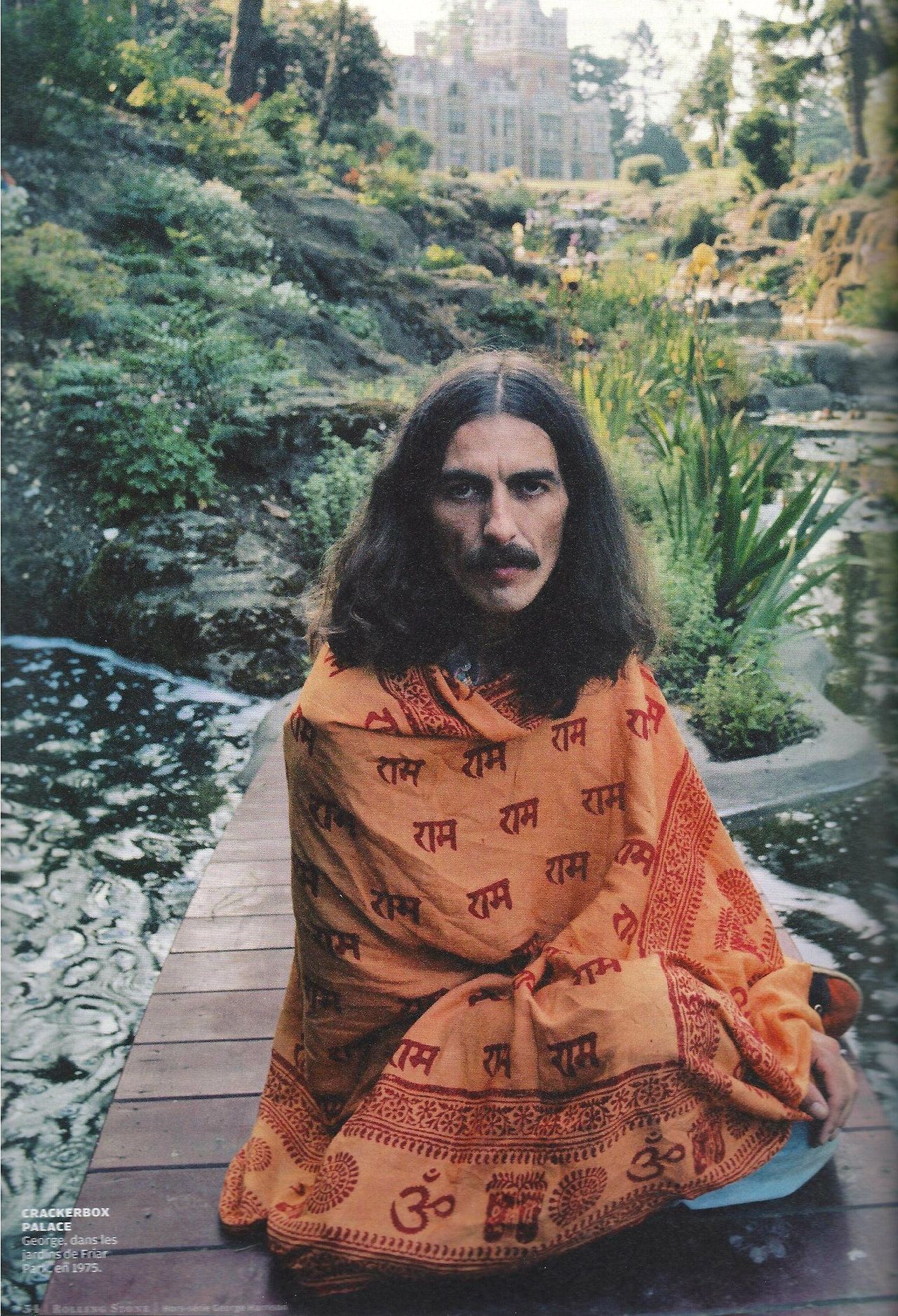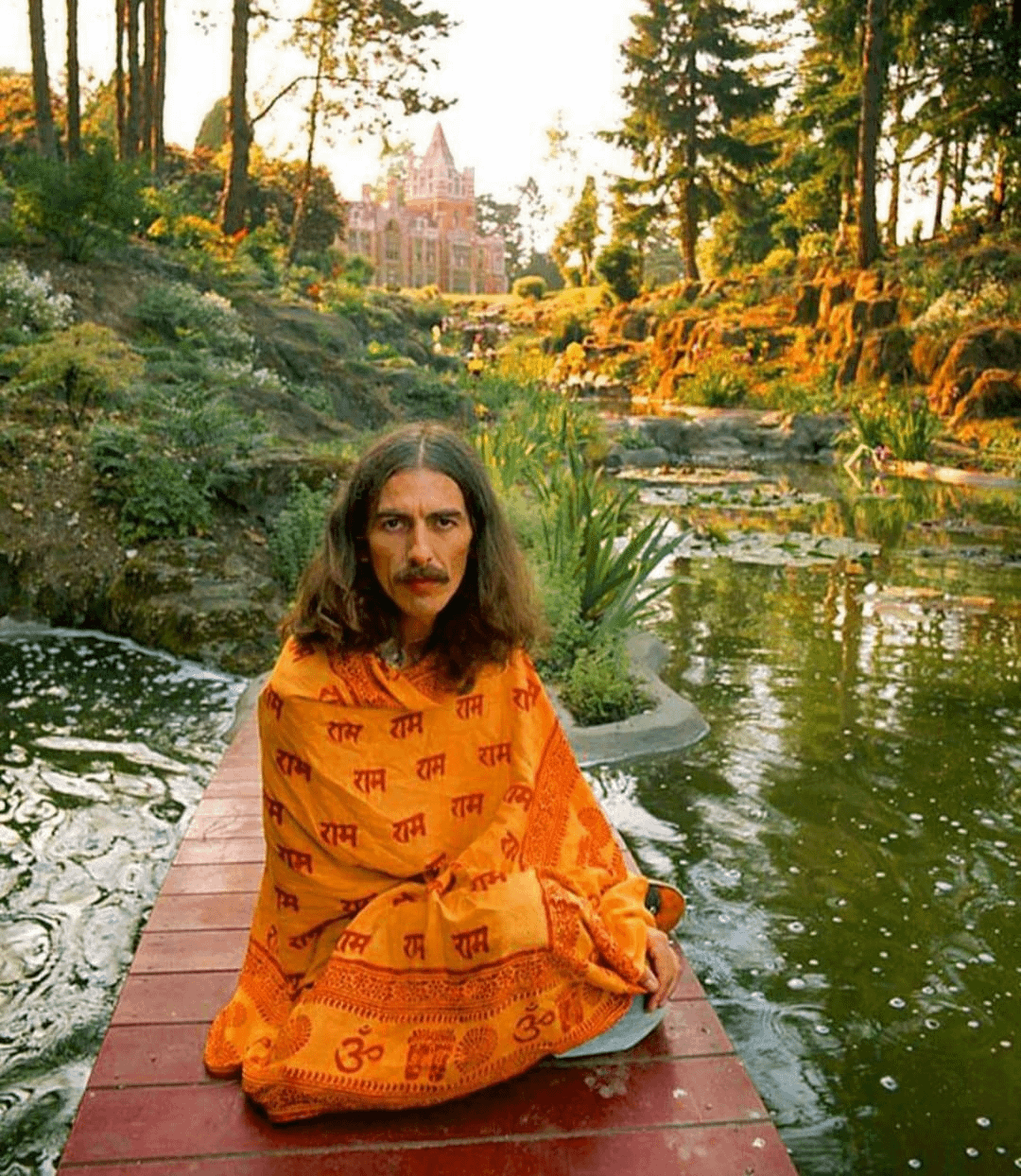Title: George Harrison’s Journey into Hinduism: A Musical and Spiritual Odyssey

Introduction
George Harrison, the legendary guitarist and member of The Beatles, was not only a musical icon but also a spiritual seeker. His journey into Hinduism, a religion that profoundly influenced his life and music, is a testament to his quest for meaning and enlightenment. This article explores Harrison’s connection with Hinduism, examining its impact on his personal life, his music, and his legacy.
George Harrison’s Early Life and Musical Career
Born on February 25, 1943, in Liverpool, England, George Harrison was introduced to music at a young age. His father, Harold Harrison, was a jazz musician, and George was exposed to a wide range of musical styles. Harrison’s early musical influences included jazz, blues, and Indian classical music. It was this exposure to Indian music that would later lead him to explore Hinduism.
In 1963, Harrison joined The Beatles, and the band quickly became one of the most influential musical acts of the 20th century. Despite the immense success and fame that came with The Beatles, Harrison remained a spiritual seeker, often turning to music as a means of expressing his innermost thoughts and feelings.
The Influence of Indian Music on George Harrison
Harrison’s interest in Indian music began in the early 1960s when he heard the sitar music of Ravi Shankar. Shankar’s music captivated Harrison, and he became determined to learn the sitar himself. In 1966, Harrison traveled to India to study with Shankar, a trip that would have a profound impact on his life.
During his time in India, Harrison was exposed to the teachings of Hinduism, including the concepts of karma, dharma, and moksha. He also became fascinated with the practice of meditation and yoga. These experiences would shape his spiritual beliefs and influence his music for the rest of his life.

Hinduism and George Harrison’s Music
Harrison’s journey into Hinduism is evident in his music, particularly in the albums he released after leaving The Beatles. His 1970 album, All Things Must Pass, is a prime example of how Hindu spiritual themes influenced his work. The album’s title itself is a reference to the Hindu concept of karma, or the law of cause and effect.
One of the most notable songs from the album, My Sweet Lord, is a clear expression of Harrison’s spiritual beliefs. The song’s lyrics, which include the phrase My sweet Lord, are a testament to Harrison’s devotion to Hindu deities, particularly Krishna.
In addition to his music, Harrison also produced several albums for other artists, including John Lennon’s Imagine and Ravi Shankar’s In Search of India. These projects further demonstrate his commitment to promoting Indian music and spirituality.
George Harrison’s Personal Life and Hinduism
Harrison’s spiritual journey extended beyond his music. He was an avid practitioner of meditation and yoga, and he often spoke about the importance of inner peace and self-awareness. His personal life was also deeply influenced by Hinduism, as he adopted many of the religion’s customs and practices.
Harrison’s marriage to Olivia Arias, a Mexican-American woman, was also influenced by Hinduism. The couple was married in a Hindu ceremony, and Olivia was raised as a Hindu. Their union was a testament to Harrison’s commitment to his spiritual beliefs and his willingness to embrace different cultures.

George Harrison’s Legacy
George Harrison’s journey into Hinduism left a lasting legacy. His music continues to inspire fans around the world, and his commitment to spiritual exploration has influenced countless musicians and spiritual seekers. Harrison’s work also helped to bring Indian music to a wider audience, bridging cultural divides and promoting understanding.
In addition to his musical contributions, Harrison was also a philanthropist, using his wealth and influence to support various causes, including environmental protection and the promotion of Indian music and culture.
Conclusion
George Harrison’s journey into Hinduism was a complex and transformative experience. His exploration of Hindu spiritual beliefs and practices had a profound impact on his personal life, his music, and his legacy. By embracing the teachings of Hinduism, Harrison was able to find meaning and purpose in a world that often seemed chaotic and uncertain. His story serves as an inspiration to anyone seeking spiritual enlightenment and the courage to explore the depths of their own beliefs.
The importance of Harrison’s journey lies not only in his personal growth but also in his ability to share his experiences with the world. His music and his actions have left an indelible mark on the cultural landscape, and his legacy continues to inspire future generations to seek truth and peace in their own lives.
As we reflect on Harrison’s journey, it is clear that his connection with Hinduism was more than just a phase; it was a lifelong commitment to spiritual growth and understanding. His story reminds us that music and spirituality are deeply intertwined, and that the pursuit of enlightenment can be a powerful force for change and transformation.









